UPDATE: On June 5 UNESCO decided to call on Poland to halt the logging in Białowieża Forest. While the UN delegates debated on the issue in Cracow, activists in Białowieża were blocking logging machines. They were met with unprecedented violence from the Forestry Corps, who tackled them to the ground and handcuffed them before forcibly removing the activists from the forest.
There are two words dominating Poland this summer: harvester and forwarder. The former grabs, burrs, cuts, piles, rolls on, and throws wood on the latter. “Siwy”, a farmer from the Podlachia region, says that such a harvester is capable of cutting 60 cubic meters of wood during a single entry to the Białowieża Forest.
In Canada, there are even worse machines. They can strike off 150 cubic metres at once. However, Canadians still have some trees since half of their country is a forest. They did not manage to cut them on time – Siwy remarks. He is glad as he has just spotted the machines cutting down the forest.
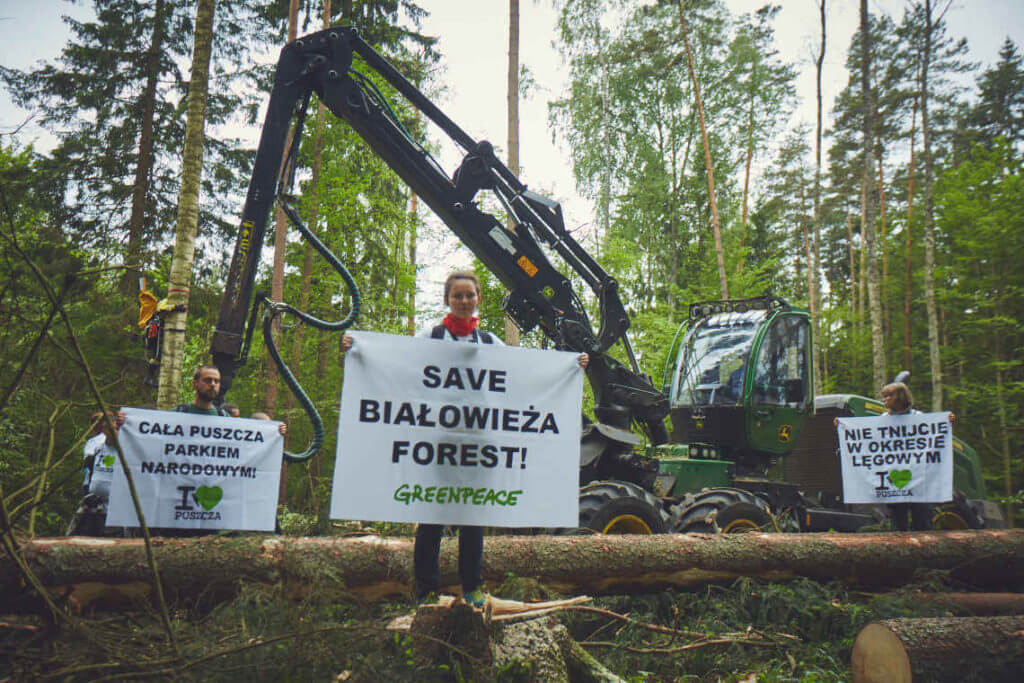
Technically, somebody else spotted them but Siwy has confirmed that they are really there. That is important, too. In the camp there was a call that they were parked near the forestry management office. They were not cutting because it was their day off – Sunday – but at the beginning of the week they will get back to work.
Why is an active ecological guerrilla on duty in the Białowieża Forest? Against whom do they protect trees that are over a hundred years old from?
„After years of efforts to limit the scale of logging and increase the amount of protected areas in the Białowieża Forest, the current Polish Government has taken a radically different direction,” ecologists write in a press release sent to the media. “Using the outbreak of the spruce bark beetle as an excuse, intensive logging has begun in pristine parts of the forest. In the first four months of 2017, over 10 thousand trees have been cut down in parts of the forest with the oldest being trees over a 100 years old. The recently imposed legal ban on entering major parts of the forest serves to prevent citizen control of the intensified logging. Białowieża Forest, the last natural forest of European lowlands, a UNESCO World Heritage Site home to European bison and thousands of other species, is now in danger”.
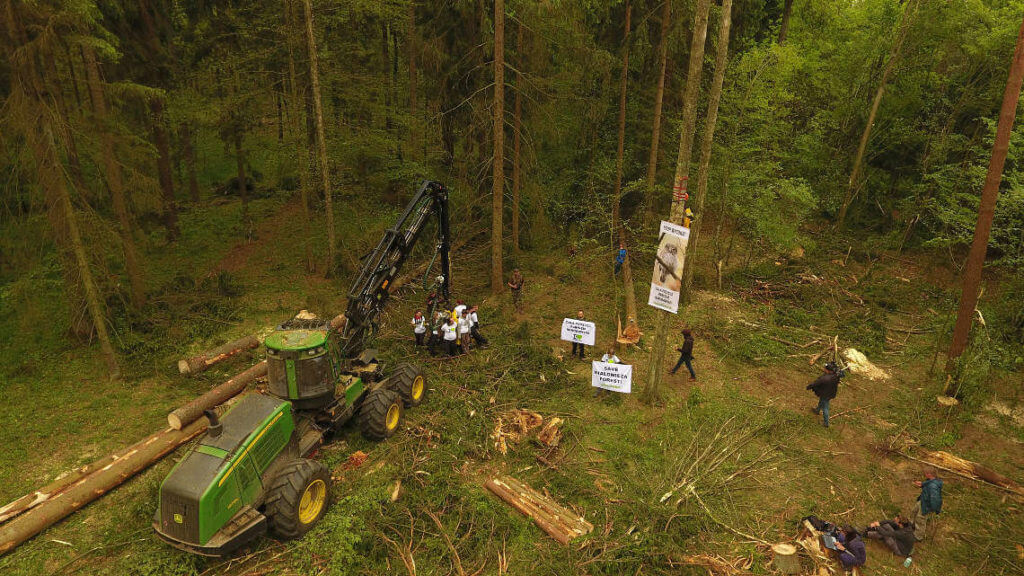
Two days after “Siwy” spotted the harvester, a dozen or so protesters chained themselves to trees and machines, blocking the entry for the harvesters and forwarders. They stoodagainst the banner: “STOP THE LOGGING OF THE BIAŁOWIEŻA FORST”.
Planning takes a couple of days since chaining to the machines (and trees) requires cleverness and consistent execution. There is no time for either mistakes or romantic sentiments. Just try to put your hand into a PVC pipe and then chain them together. Why do you need a PVC pipe? So it is not clear where to cut. The police officers and guards do not want to have mutilated hands on their conscience – so they have to struggle a bit to free the machines from the living chains made of human limbs and PVC pipes.
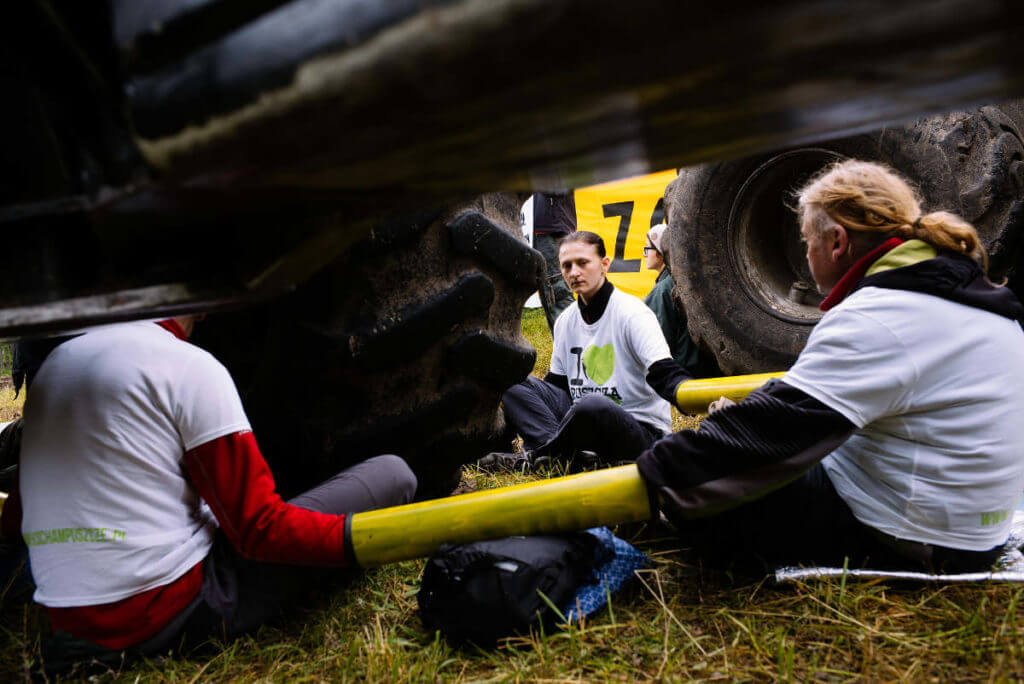
It has been a subsequent blockade in the last couple of months. Nothing indicates that the activists – who pitched a few camps near the forest – will soon leave the place. The following weekend will be a great chance to personally find it out.
There are always some railings to fix. The patrols go to the forest everyday. Someone has to prepare food and the bonfire also has to be made. Personal involvement is always welcomed.
Sometimes guests appear. On Saturday, for instance, there came a “guy in a Merc” – one camper reported. “Something stinks here? Feel it?” was heard from the half-opened window. “No, unfortunately, we don’t,” answered the people politely at the camp. “Yeah, that’s you who stinks! In the whole forest! Ha ha!” he ended his joke and drove off in his “Merc”.
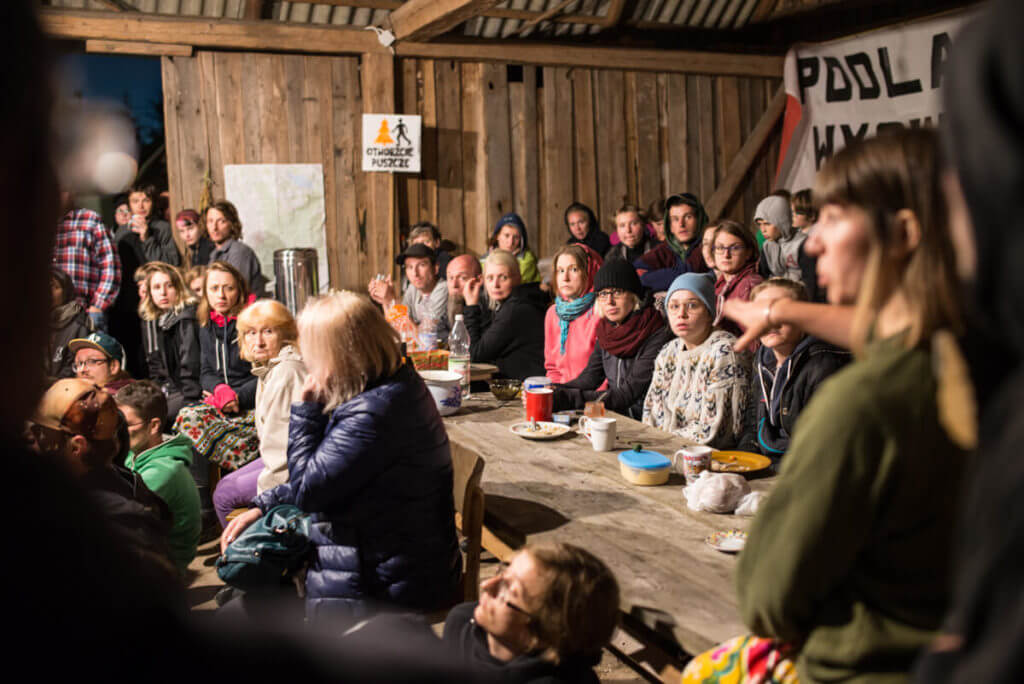
“With the locals, we have various experiences,” says Asia openly. “We called local guesthouses, we visited people. We managed to get more than a hundred signatures for the petition to stop the logging.”
Asia has also prepared a list of guesthouses and farms which “support the right side” – as the campers call their allies. It will be soon posted online.
“This very forest is their biggest treasure. Tourists come just to see it. And the locals, instead of fighting, are full of fear and anticipation – I guess – until it will all be cut with harvesters,” I hear at the camp.
Come to the forest and visit the camp, where you will see how much time is needed to dig a latrine or to spot a European bison. With a bit of luck you will also meet someone working for the State Forests – the institution responsible for the logging.
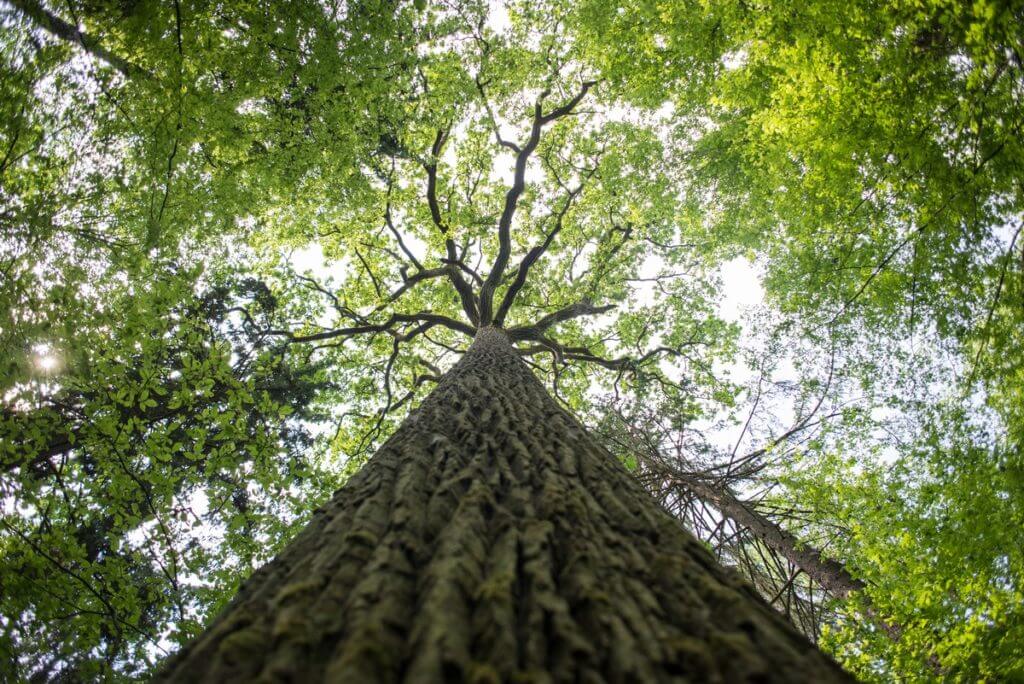
“Why, in fact, do you protest here and make all this fuss? Because of those pseudo-one-hundred-year-old trees? Who counts that?” shouted a man in a forest uniform last Sunday. “The borers eat away the entire forest and those trees will fall onto your heads! We want to clean it all up, and you take back our right to work. Go to the politicians, they passed this law and don’t chain yourselves to these trees.”
“We protest here because the trees grow here, not in front of the Ministry,” answered Michał, a writer, ornithologist and one of the campers. “Besides that, you’re well aware that you cut more than hundred-year-old trees and that’s against European law. You’ll see, you’ll all be punished for that. And stop this nonsense about the borers – since the Second World War nobody has been crushed by a tree.”
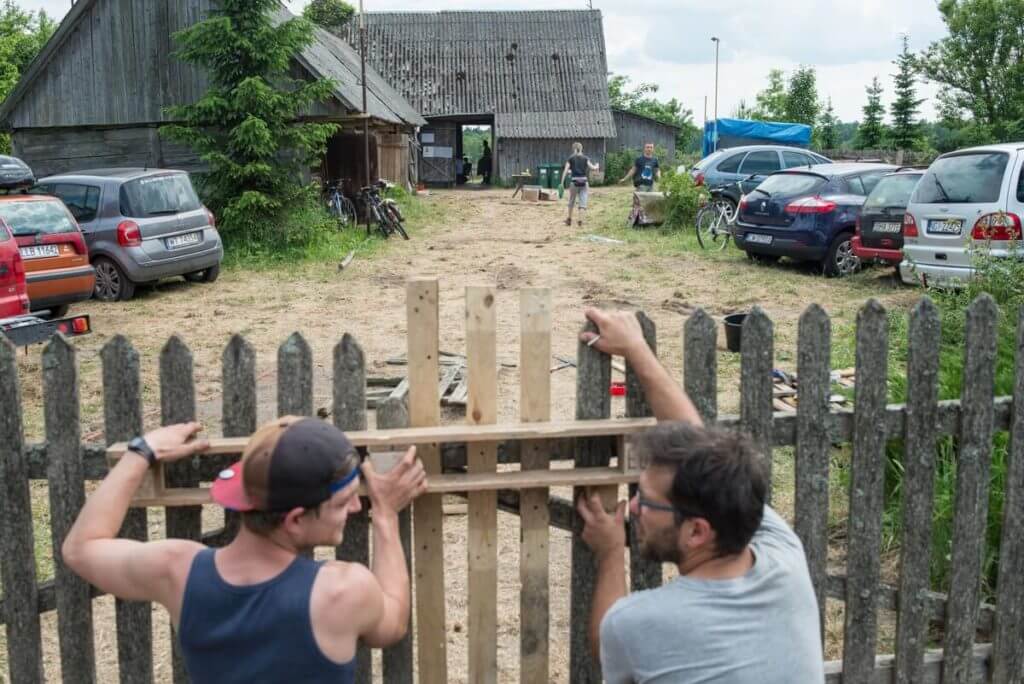
But if you are not a big fan of verbal fights and you do not like chaining your hands inside the plastic tubes, you can still engage yourself in saving the Białowieża Forest. The defenders of the forest prepared a list of things you can do:
– Join the International Solidarity Week (3-9 of July) and organise a local demonstration or happening, demanding full protection of the Białowieża Forest. This week, UNESCO meets in Cracow to discuss the future of the forest as a World Heritage Site. Let them know that the whole world is watching!
– Come to Białowieża and join us, we need as many people as possible to build the critical mass!
– You can stay in the camp and we also recommend local housing and local restaurants in order to support the local community, which is struggling because of government actions.
– Spread the word and ask your local media to contact us, to put the Forest devastation in the spotlight.
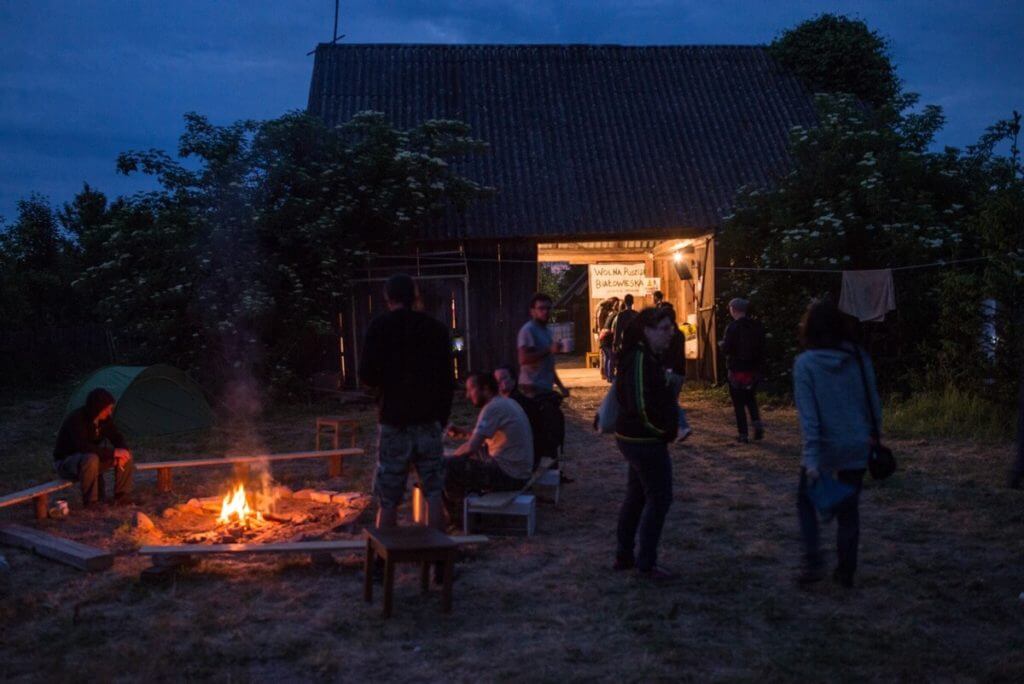
![Political Critique [DISCONTINUED]](https://politicalcritique.org/wp-content/uploads/2015/09/Political-Critique-LOGO.png)
![Political Critique [DISCONTINUED]](https://politicalcritique.org/wp-content/uploads/2015/09/Political-Critique-LOGO-2.png)
Do you think Poland really cares if the EU bankers want Poland to stop logging in this forest? Do you think the EU bankers really care about the natural wildlife habitat of this forest? From the EU banker’s perspective, Poland is exploiting resources that they feel belongs to them. I wonder if we will see eco-terror cells beginning to operate in these woods, targeting loggers, hunters, and hikers alike? It will remain to be seen if anyone really wants to suffer the hardships and rigors of the revolutionary lifestyle for the sake of wildlife habitat. Such a movement will find minimal sanctuary within the local population, something that even ISIS has atleast a little bit of in Syria/Iraq. If this does occur, maybe they will try to blame this on Russia? None of this will matter anyway, as this little brush fire will be drowned out in the thunder claps of Poland’s upcoming civil war. Brian Ghilliotti